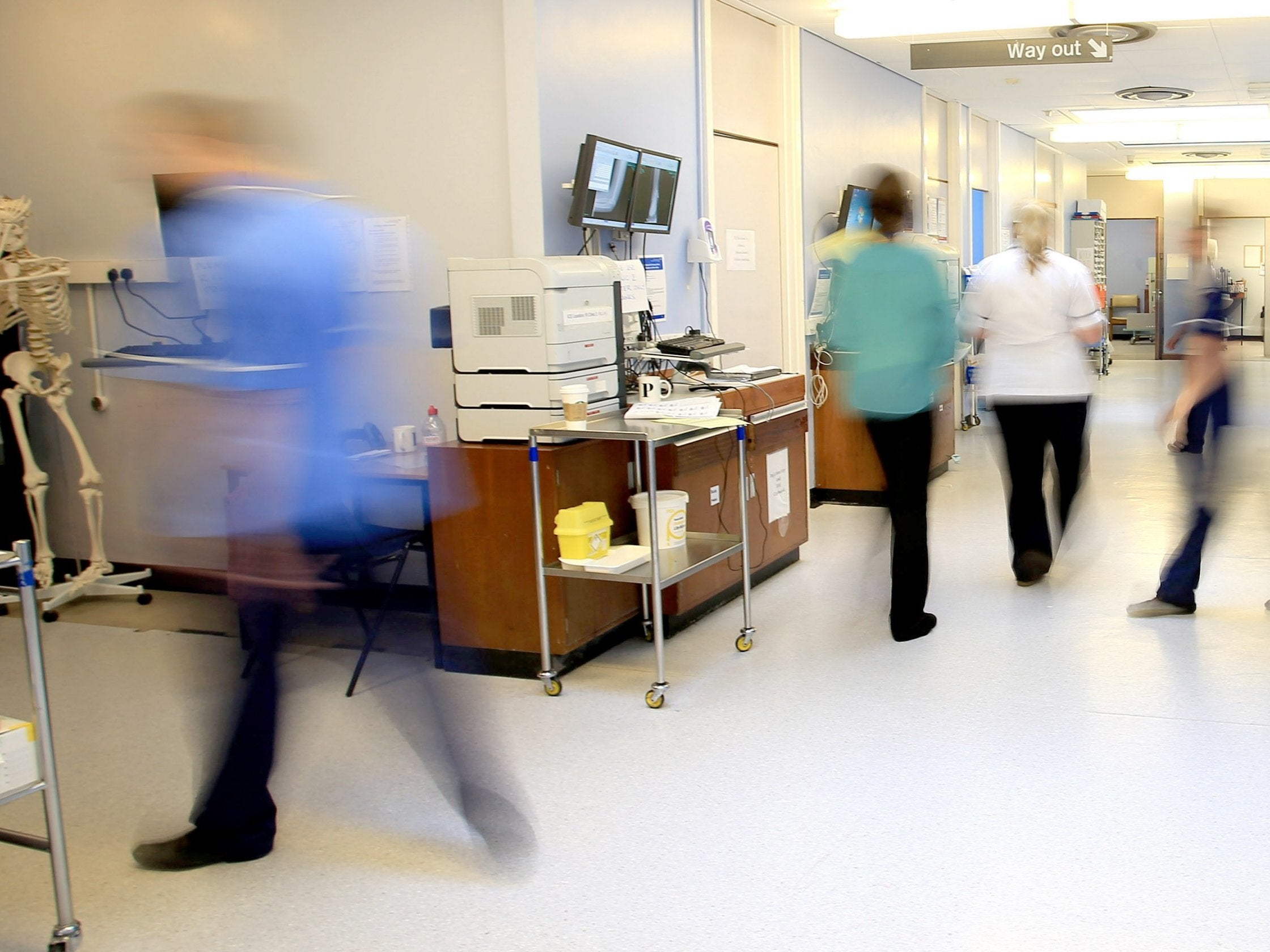'Inefficient' NHS has seen productivity grow twice as fast as economy
'This certainly gives the lie to the idea that the health service is some sort of backwater of inefficiency missing out on progress – it appears quite the opposite'

Productivity in the English NHS has grown at twice the rate of the wider economy, despite the government using supposed inefficiencies to justify ever more drastic cuts.
Improvements in survival rates and numbers of patients treated in the health service each year have vastly outpaced investment in staff and budgets, a report by the Centre for Health Economics at York University found.
Pound for pound the NHS delivered 16.5 per cent more care in 2016/17 than it did in in 2004/05. This compares to productivity growth of just 6.7 per cent for the wider economy.
Productivity rose 2.86 per cent between 2015/16 and 16/17 alone. Since 2010 it has outpaced the economy, despite the fact that its budget increases were held to just 1 per cent a year on average as part of Conservative-led government drives to increase efficiency, which have left staff working flat out.
“This is a huge tribute to the work of NHS staff, and the intrinsic efficiency of this country’s health service,” NHS England chief executive Simon Stevens said on Tuesday.
“This independent research confirms that NHS productivity has been growing at more than double that achieved by the rest of the UK economy including the private sector.”
From April the health service has begun to receive the first instalments of the £20.5bn budget uplift promised by Theresa May.
The investment is less than NHS England said was needed to address the damage of the last decade of austerity. Despite this the prime minister still said it was only available on the proviso that it “tackles waste, reduces bureaucracy and eliminates unacceptable variation”.
The Institute of Economic Affairs, a think tank whose chair has ties to the government, has branded the health service among the most “overrated and inefficient in the world”.
But the latest report puts these claims to rest.
“This certainly gives the lie to the idea that the health service is some sort of backwater of inefficiency missing out on progress – it appears quite the opposite,” said Professor John Appleby, chief economist at the Nuffield Trust think tank.
The York report shows the NHS is delivering 60 per cent more “care” per year than it was in 2004, including 5.2 million more operations a year than and 60 million more patient appointments.
Far more than the relative growth in its funding for staff, medicines and repairs.
Meanwhile, productivity in the UK was stagnant in this period, lagging well behind France, Germany and the US and with little done to address this before belated measures in 2015.
However, Professor Appleby said the NHS “shouldn’t get carried away”, as quality improvements have been slower since 2011, showing the “trade-offs” that are being made to meet demand.
Waiting times in particular have been getting longer since 2009/10, the report notes, and these reached record levels in A&Es this year, despite a milder winter.
While caps on costly agency spending and “ineffective” treatments, pay freezes, and the rationing of costly services such as IVF and hip surgery have created inequalities and dissatisfaction around the country.
Saffron Cordery, deputy chief executive of NHS Providers, which represents health service trusts, said gains could be maintained if the government gets to grips with workforce issues. It also need to make it easier for NHS organisations to work together – something that would require repealing legislation brought in by the Conservatives to encourage competition.
A Department of Health and Social Care spokesperson said: “The NHS Long Term Plan sets out a plan to make every penny of taxpayers’ money count and ensure the health service works hard to provide the best possible services and outcomes for patients in the most cost-effective ways.
“We’re further backing the NHS with a record cash funding increase of £33.9bn a year by 2023/24, which will safeguard the health service for years to come.”
Join our commenting forum
Join thought-provoking conversations, follow other Independent readers and see their replies
Comments
Bookmark popover
Removed from bookmarks